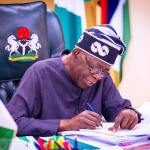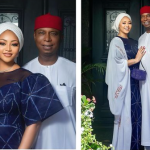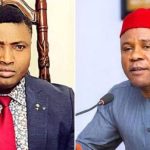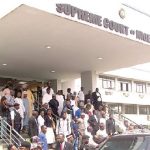Nicolas Maduro has been declared the winner of Venezuela’s presidential election, but the opposition and several neighboring countries are rejecting the results.

The opposition claimed victory by a large margin, despite accusations of political intimidation and fears of fraud.
Pollsters had predicted that the 61-year-old president would lose but would not concede after more than a decade in power.
According to the electoral council (CNE), Maduro won his third term re-election with 51.2 percent of the votes, while opposition candidate Edmundo Gonzalez Urrutia received 44.2 percent.
The CNE is largely loyal to Maduro who celebrated his victory with supporters at the presidential palace shortly after the announcement on Sunday, July 28.
He stated, “I can say, before the people of Venezuela and the world, I am Nicolas Maduro Moros, the re-elected president of the Bolivarian Republic of Venezuela. There will be peace, stability and justice. Peace and respect for the law.”
However, the opposition coalition insisted it had won 70 percent of the vote and rejected the CNE’s figures.
Opposition leader Maria Corina Machado declared Edmundo Gonzalez Urrutia as the rightful president-elect, calling the official result “another fraud.”
Gonzalez Urrutia, a 74-year-old former diplomat, vowed to continue fighting for the will of the Venezuelan people and emphasized there was no call for protests.
He said, “We want to say to all of Venezuela and the world that Venezuela has a new president-elect and it is (candidate) Edmundo Gonzalez Urrutia.
“Our fight continues, and we will not rest until the will of the Venezuelan people is reflected,” while underlining that there was no call for protests.
“The results are undeniable. The country chose a peaceful change,” Urrutia wrote on X ahead of the official result.
International reactions included Costa Rican President, Rodrigo Chaves denouncing the official result as “fraudulent,” while Chile’s president found it “hard to believe.”
Peru recalled its ambassador over the results while US Secretary of State Antony Blinken and EU foreign policy chief Josep Borrell expressed serious concerns about the election’s transparency.
Venezuela’s allies, including China, Cuba, Nicaragua, Honduras, and Bolivia, congratulated Maduro.
Independent polls had predicted an end to 25 years of “Chavismo,” the movement founded by Maduro’s predecessor, Hugo Chavez.
Since 2013, Maduro has led the country, which has seen its GDP drop by 80 percent and over seven million people emigrate. He is accused of authoritarianism, including jailing critics and harassing the opposition.
Gonzalez Urrutia replaced popular candidate Machado after she was excluded from the race by authorities loyal to Maduro.
Maduro had warned of a “bloodbath” if he lost and relied on loyal electoral machinery, military leadership, and state institutions.
The voting process involved electronic ballots and printed paper receipts. The opposition deployed about 90,000 volunteer monitors nationwide.
The CNE president, Elvis Amoroso, cited an “aggression against the data transmission system” that delayed the count, and Maduro mentioned a “hacking” of the system.
Venezuela, with the world’s largest oil reserves, faces severe economic challenges, contributing to migration pressures on the US border.
Most citizens live on a few dollars a month, and the country’s healthcare and education systems are in disrepair.
The government blames sanctions, but observers also cite corruption and inefficiency. Concerns over the vote’s fairness were heightened when international observers were blocked at the last minute.
KanyiDaily recalls that the United States had promised to offer $15 million reward for information leading to the arrest of Venezuelan President, Nicolas Maduro, on drug-trafficking charges.





![Portable Fights With Nigerian Man At Shopping Mall In Canada [Video] 7 Portable Fights With Nigerian Man At Shopping Mall In Canada [Video]](https://media.kanyidaily.com/2024/11/23120451/portable-150x150.jpg)

![VeryDarkMan Accuses Access Bank Of 'Stealing' Late Customer's Over N500 Million [Video] 11 VeryDarkMan Accuses Access Bank Of 'Stealing' Late Customer's Over N500 Million [Video]](https://media.kanyidaily.com/2024/11/23092706/VeryDarkMan-Access-Bank-150x150.jpg)


![Senator Ifeanyi Ubah Buried Amid Tears In Nnewi, Anambra [Photos] 17 Senator Ifeanyi Ubah Buried Amid Tears In Nnewi, Anambra [Photos]](https://media.kanyidaily.com/2024/11/22181108/Ifeanyi-Ubah-150x150.jpg)




